- Arakan Army’s handover of 73 Bangladeshi fishermen signals potential boost in border cooperation
- Myanmar military officers accused of profiting from dismantled homes in Sittwe villages
- DMG Editorial: A Parliament Without the People Cannot Govern Arakan
- Displaced Arakanese struggle to rebuild homes leveled by junta airstrikes
- India suspends Arakan trade route for two months after death of truck driver in Paletwa
Sittwe residents hope to see Arakanese tug-of-war festival this year
The festival is traditionally believed to bring about bumper harvest, peace and prosperity in Arakan State, and is generally held before Tabodwe Full Moon Day.
26 Jan 2023
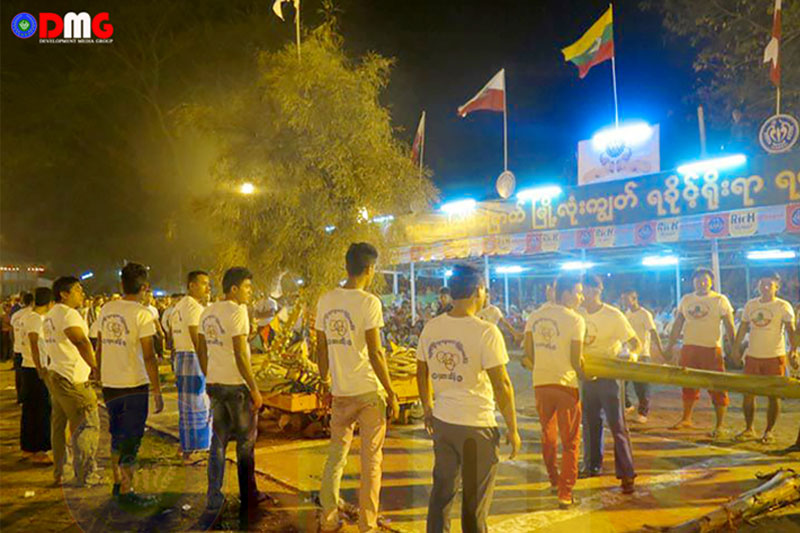
DMG Newsroom
26 January 2023, Sittwe
The traditional Arakanese tug-of-war festival has not been held for five consecutive years in Arakan State’s capital, Sittwe, due to instability and the Covid-19 pandemic. The annual event is unlikely to be held this year too due to financial constraints, according to event organisers.
In ordinary tug-of-war games, two teams stand at opposite ends of a rope and try to drag the other across a centre line. In some forms of the game, a tape or handkerchief is tied around the centre of the rope. Similarly, in traditional Arakanese tug-of-war competition, a wheeled cart decorated with colourful papers and ornaments is tied around the centre of the rope, and teams representing each ward in the town take part in the competition, signing Thangyat.
The wheeled cart is damaged, and needs repairs, U Ko Ko Lay of Arakanese tradition conservation team told DMG.
“As the festival has not been held for ages, the cart is damaged. It will cost around 4 million kyats to rebuild the cart alone. And we only use the steel rope, and it is rusty now. We will be able to hold the game if we have funds,” said U Ko Ko Lay.
In previous years, the Arakan State government provided funds, and locals also made contributions.
The festival is traditionally believed to bring about bumper harvest, peace and prosperity in Arakan State, and is generally held before Tabodwe Full Moon Day.
Writer U Wai Hun Aung from Sittwe said: “It is a traditional festival of Arakanese people held in Tabodwe. It is a pity that a tradition has ceased. I want this tradition to continue, and would like to urge organisers to hold it annually.”
The traditional festival was held for the first time in 40 years in 2009, and 10 annual festivals have been held since after it was stopped by fighting and then Covid-19.
According to historical records, the festival has to be held in the Myanmar calendar month of Tabodwe (January or February) before the Full Moon Days because more constellations can be seen in Tabodwe than other times of the year.




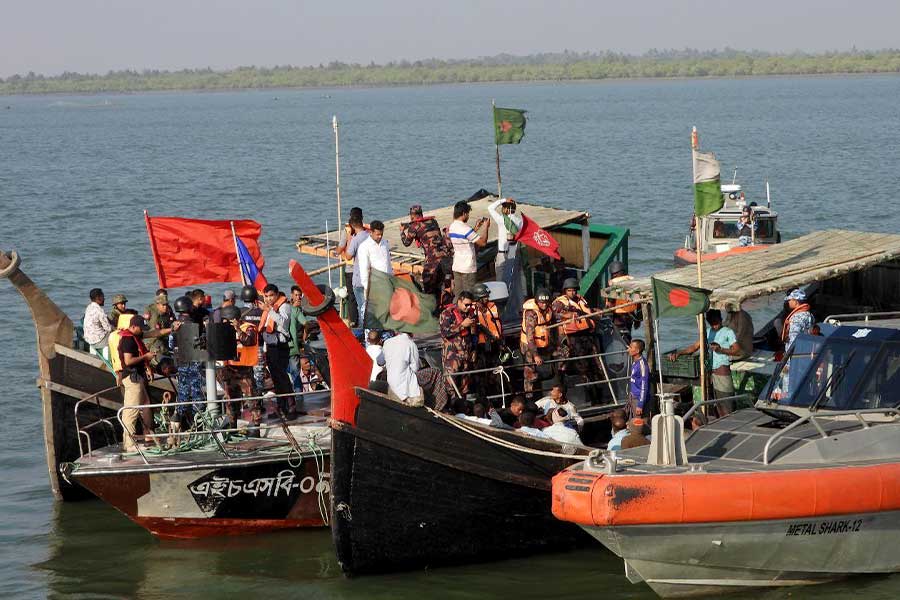
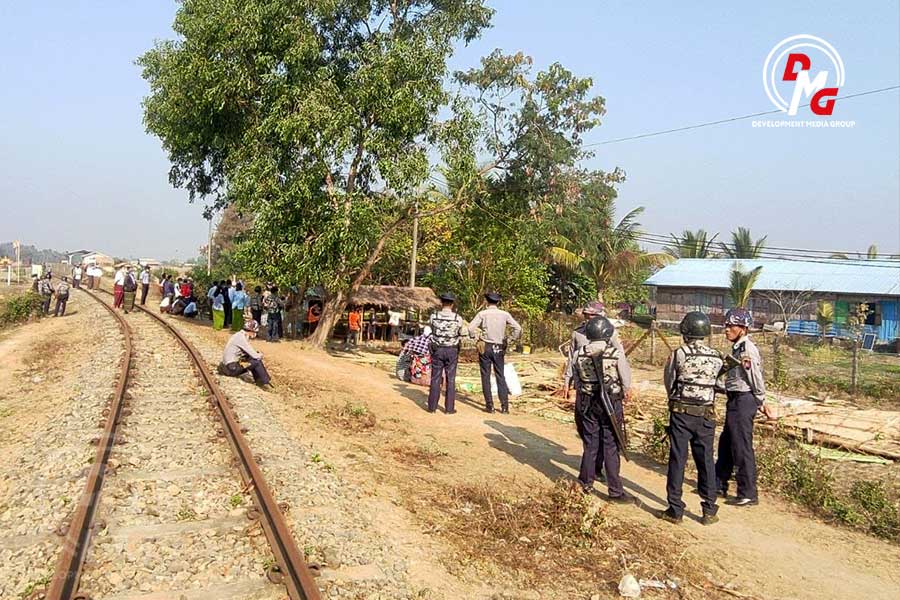
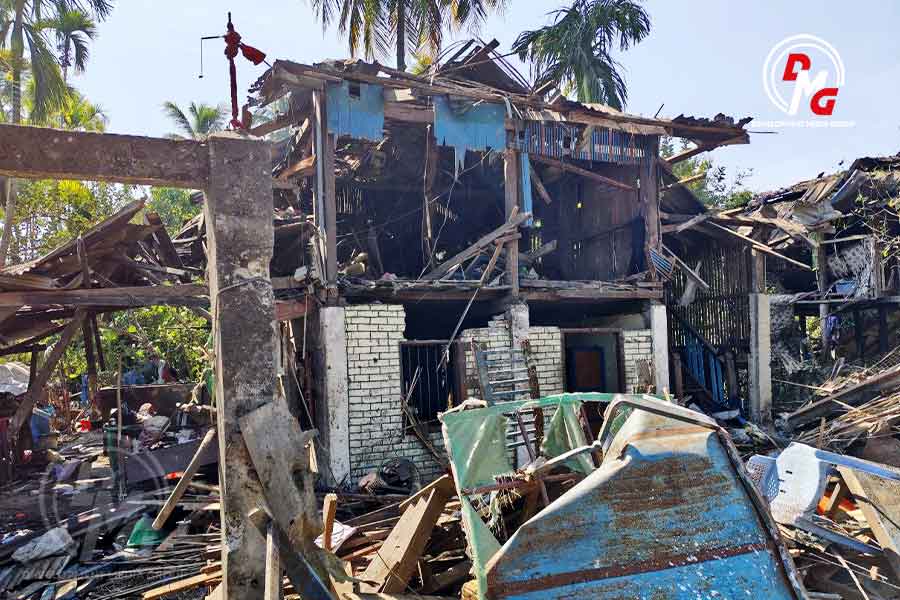
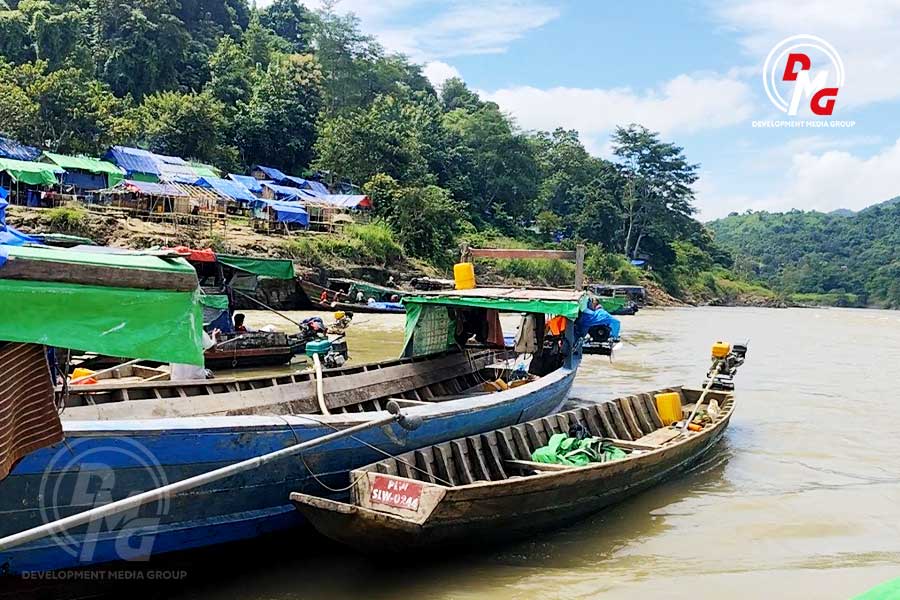








.jpg)
